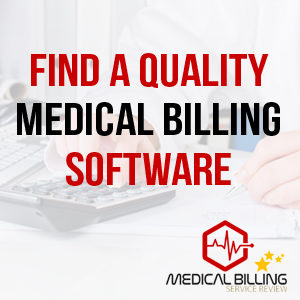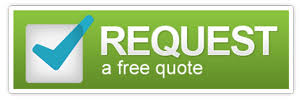
The Benefits of Integrated Medical Billing Solutions
In the ever-evolving landscape of healthcare, the efficiency and effectiveness of administrative processes are as crucial as the quality of medical care provided. Integrated medical billing solutions represent a significant leap in streamlining these processes. This blog explores what integrated medical billing means for healthcare practices and how it can substantially improve operational efficiency and financial health.
What are Integrated Medical Billing Solutions?
Integrated medical billing solutions refer to a comprehensive approach to handling patient billing and claims management. This system combines various components of the billing process — from patient registration, insurance verification, and coding to claim submission, payment processing, and revenue cycle management — into a single, cohesive platform.
Unified System
The core of an integrated solution is the unification of all billing-related tasks. This consolidation means data flows seamlessly between different stages of the billing process, reducing the need for repetitive manual entry and the risk of errors that come with it.
Real-Time Data Access
Integrated systems provide real-time access to patient data and financial information. This immediate access allows for quicker decision-making, up-to-date reporting, and a clearer understanding of the practice’s financial performance.

The Benefits of Medical Practices
Enhanced Efficiency and Productivity
With integrated medical billing solutions, healthcare providers can streamline their administrative workflows. Automated data entry, simplified coding processes, and efficient claim tracking reduce the time and labor involved in billing tasks, allowing staff to focus more on patient care and less on paperwork.
Reduced Billing Errors and Claim Denials
One of the significant challenges in medical billing is errors leading to claim denials or delays. An integrated system minimizes these errors by ensuring that all billing information is accurate and consistent across the process. Automated checks and balances can catch common errors before claims are submitted.
Improved Financial Management
An integrated billing system offers robust reporting and analytics tools, giving practices a comprehensive view of their financial health. This insight is invaluable for effective revenue cycle management, helping practices identify areas for improvement, monitor payer trends, and make informed financial decisions.
Enhanced Patient Satisfaction
By streamlining billing processes, integrated solutions can also lead to improved patient satisfaction. Faster billing and claim processing, along with clearer communication, enhance the overall patient experience. Additionally, easy access to billing information and online payment options add to patient convenience.
Compliance and Security
Integrated systems are designed to be compliant with healthcare regulations, including HIPAA. They offer secure platforms for handling sensitive patient data, ensuring that practices meet legal standards and protect patient privacy.
Integrated medical billing solutions offer a pathway for healthcare practices to enhance operational efficiency, reduce errors, improve financial management, and boost patient satisfaction. By adopting such a system, practices can navigate the complexities of medical billing more effectively and focus on delivering quality patient care. As healthcare continues to evolve, embracing integrated solutions is becoming not just an option but a necessity for the success and sustainability of medical practices.

Implementation in Healthcare Practices
Adopting an integrated medical billing solution involves several key steps that ensure a smooth transition and effective integration into a healthcare practice’s existing systems.
Customization to Meet Specific Needs
Every healthcare practice has unique needs based on its size, specialty, and patient demographics. Integrated billing solutions can be customized to fit these specific requirements, ensuring that the system adds value from day one.
Training and Support
Successful implementation requires thorough training for staff. This training ensures that all team members are comfortable using the new system and understand its features and benefits. Ongoing support is also crucial for addressing any challenges that arise during and after the transition.
Integration with Electronic Health Records (EHR)
Many integrated billing solutions offer seamless integration with EHR systems. This compatibility ensures that patient care and billing processes are closely aligned, enhancing the accuracy and efficiency of both.
Continuous Monitoring and Optimization
After implementation, continuous monitoring is vital to assess the system’s effectiveness. Regular reviews and adjustments ensure that the billing process remains optimized for the practice’s evolving needs.
Long-Term Benefits for Healthcare Practices
The adoption of an integrated medical billing solution offers several long-term benefits that can significantly impact the overall success of a healthcare practice.
Sustainable Financial Health
By streamlining billing processes and improving claim accuracy, practices can see a positive impact on their financial health. Reduced claim denials, quicker payment cycles, and better revenue management contribute to a more robust and sustainable financial position.
Adapting to Industry Changes
The healthcare industry is constantly evolving, with changes in regulations, billing standards, and patient expectations. An integrated billing system provides the agility and flexibility to adapt to these changes, ensuring that the practice remains compliant and competitive.
Enhancing Data Security
With increasing concerns about data breaches and privacy issues, integrated billing solutions offer advanced security measures to protect sensitive patient information. This security is crucial for maintaining patient trust and adhering to regulatory requirements.
Long-term Patient Relationship Management
Integrated billing systems can contribute to better patient relationship management by providing a more transparent, efficient, and user-friendly billing experience. Satisfied patients are more likely to return and recommend the practice to others, contributing to its growth and reputation.
Integrated medical billing solutions represent a forward-thinking approach to managing the financial and administrative aspects of healthcare practices. With benefits ranging from improved efficiency and financial health to enhanced patient satisfaction and data security, these systems are an invaluable investment for any practice looking to thrive in today’s healthcare landscape.

The Role of Compliance in Medical Billing Solutions
Compliance in healthcare, particularly in medical billing, is about more than just following rules. It’s about ensuring patient privacy, accurate billing practices, and preventing fraud. Regulations like the Health Insurance Portability and Accountability Act (HIPAA) set the standard for protecting sensitive patient data and ensuring that healthcare providers handle patient information responsibly.
HIPAA and Medical Billing
HIPAA compliance is integral to medical billing. It dictates how healthcare providers and billing services handle patient information, specifically during the transmission and processing of medical claims. Violations of these regulations can lead to severe penalties, including hefty fines and legal action, making compliance a top priority for healthcare practices.
Integrated Billing Solutions and Compliance
Simplifying Compliance
Integrated medical billing solutions are designed with compliance at their core. They incorporate features that protect patient data, ensure secure information transmission, and maintain accurate records. This integrated approach means that compliance is built into every step of the billing process, significantly reducing the risk of violations.
Features that Enhance Compliance
- Secure Data Transmission: These systems use encrypted channels to transmit patient data, ensuring that sensitive information is protected against unauthorized access.
- Audit Trails: Integrated systems maintain detailed logs of all billing activities, providing an audit trail that is crucial for compliance checks and investigations.
- Access Controls: They implement robust access controls, ensuring that only authorized personnel can access sensitive patient information.
Keeping Up with Changes: Adapting to Healthcare Law and Billing Code Evolution
The Challenge of Constant Change
Healthcare laws and medical billing codes are in a state of continual evolution. Staying updated with these changes is crucial for maintaining compliance and ensuring accurate billing. However, keeping up can be a daunting task for healthcare providers, especially those without specialized billing knowledge or resources.
How Integrated Systems Simplify Adaptation
Integrated medical billing solutions are designed to be adaptable, regularly updating to reflect the latest changes in laws and billing codes.
- Automatic Updates: These systems often receive automatic updates to coding standards and regulatory requirements, ensuring that the billing process remains compliant with current laws.
- Educational Resources and Support: Many integrated billing solutions provide educational resources and support to help healthcare practices understand and implement new changes.
In the intricate realm of healthcare billing, compliance is not optional but essential. Integrated medical billing solutions offer an effective way to navigate the complexities of healthcare regulations and adapt to ongoing changes. By ensuring compliance and simplifying the process of adapting to new laws and codes, these systems allow healthcare providers to focus more on patient care and less on the intricacies of billing regulations. For healthcare practices seeking to streamline their operations while maintaining strict adherence to healthcare laws, exploring integrated medical billing solutions is a step in the right direction.

Comparing In-House vs. Outsourced Medical Billing Solutions
A critical decision for healthcare practices revolves around managing their medical billing — should it be handled in-house, or is outsourcing a more viable option? This part of our blog examines the pros and cons of each approach and provides a cost-benefit analysis to aid healthcare providers in making an informed decision that aligns with their practice’s size and capabilities.
In-House Medical Billing: Pros and Cons
Advantages of In-House Billing
- Control and Oversight: Managing billing in-house offers complete control over the entire process. This can lead to a more personalized approach to billing and collections.
- Direct Communication: In-house billing facilitates direct communication between billing staff and healthcare providers, potentially leading to quicker resolution of issues and questions.
- Patient Relationships: In-house teams can have a better understanding of patient histories and preferences, which can be beneficial in handling billing queries and fostering patient trust.
Disadvantages of In-House Billing
- Resource Intensive: In-house billing requires significant resources, including dedicated staff, software, and continual training to keep up with changes in billing codes and regulations.
- Higher Upfront Costs: There are substantial upfront costs involved in setting up an in-house billing department, including investment in technology and workspace.
- Risk of Errors: Without specialized expertise, in-house teams might have a higher risk of billing errors, which can lead to claim denials and delays in payments.
Outsourced Medical Billing: Pros and Cons
Advantages of Outsourcing Billing
- Expertise and Efficiency: Outsourcing to specialized companies provides access to a team with dedicated expertise in medical billing, potentially reducing errors and increasing efficiency.
- Cost-Effective: It can be more cost-effective, especially for smaller practices. Outsourcing eliminates the need for significant investment in staff and technology.
- Focus on Patient Care: Outsourcing allows healthcare providers to focus more on patient care rather than administrative tasks.
Disadvantages of Outsourcing Billing
- Less Control: Outsourcing reduces the practice’s direct control over the billing process.
- Communication Challenges: There may be communication barriers or delays in getting responses from the outsourced service.
- Dependency on Service Providers: The practice becomes dependent on the service provider, and any issues on their end can impact the practice’s financial operations.

Cost-Benefit Analysis
Analyzing Costs of In-House vs. Outsourced Billing
- In-House Costs: Include salaries of billing staff, training, medical billing software subscriptions, and infrastructure. These costs can be substantial but are balanced by direct control over billing processes.
- Outsourcing Costs: Typically involve a percentage of the collected revenue or a flat fee. While this can be a variable cost, it often ends up being more predictable and manageable, especially for practices with fluctuating patient volumes.
Considering Practice Size and Capabilities
- Small Practices: For small practices with limited patient volume, outsourcing can be more beneficial as it avoids the overhead of maintaining an in-house team.
- Large Practices or Groups: Larger practices may find in-house billing to be more cost-effective due to the volume of billing and the ability to distribute the overhead costs more effectively.
Choosing between in-house and outsourced medical billing is a significant decision that depends on various factors, including the size of the practice, financial capabilities, and the desire for control over billing processes. Each option has its unique advantages and challenges, and the decision should align with the practice’s overall operational goals and patient care objectives.
For healthcare providers looking to explore the benefits of integrated medical billing solutions, getting a detailed quote and consultation can be the first step toward transforming their billing processes. To discover how an integrated medical billing solution can transform your practice, visit our website for a free quote and consultation. Let us help you take the first step toward a more efficient, profitable, and patient-centric future.
Author: Mike Cynar
Mike Cynar brings buyers and sellers together by producing reviews and creating non biased webpages allowing users to share their experiences on various products and services. He and his staff write informative articles related to the medical field, legal, and other small business industries.

Leave a Reply